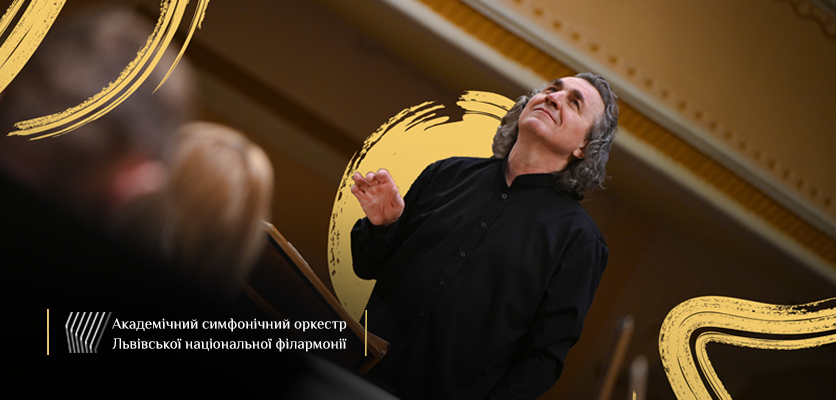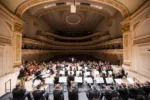Evening with Symphony Orchestra
Концертний зал Людкевича
150–390

Artists:
- Nazarii Pylatiuk, violin
- Lviv National Philharmonic Symphony Orchestra
- Volodymyr Sirenko, conductor
Program:
- Robert Schumann. Symphony No. 4
- Oleksii Skrypnyk. Symphony No. 3 “Halyna” for violin and symphony orchestra
It was a turning point in Schumann’s life: after five years of fighting for his own happiness, consisting of endless attempts to get the bride’s father’s consent, waves of despair and desperation, and even court proceedings, on September 12, 1840, Schumann finally married the pianist Clara Wieck. The first work started after that was Symphony No. 4 – the most romantic, according to music critics, Schumann’s symphony. However, do not be in a hurry to expect from her the gusts of Liszt’s “Dream of Love”, because Schumann’s romanticism is about delving into the subconscious and otherworldly, stormy drama, distortion of the familiar and simple, which, like the waves of a merciless storm, will knock out any support from under your feet.
And all this in order to ultimately raise the D minor, bound by earthly concerns, to the heavenly joy of the D major. Even Clara, to whom Schumann did not admit to working on the symphony at first, recalled: “I didn’t know anything about this symphony yet, but watching Robert’s actions and hearing the frantic D minor, I felt that at that moment the music was flowing from his very soul.”
The one-part form of the symphony also became extravagant in the opinion of the society of that time, because after the successful premiere of Symphony No. 1, listeners were waiting for its equally successful sequel. This, as well as the not too successful premiere, forced Schumann to postpone work on the symphony for a decade. A successful decade during which he was appointed music director of the orchestra in Dusseldorf and wrote two more symphonies before the second symphony received a new revision and serial number 4. And although the original symphony also found its admirers, including Johannes Brahms, its second version is already It has remained in the repertoires of world orchestras for 170 years.
Her companion in the evening program will be a modern symphony for violin with an orchestra by the composer from Donetsk region Oleksii Skrypnyk – a symphony that the performers characterize as a symphony-drama, atonement, a symphony of inexorable fate, because the well-known Ukrainian composer Oleksii Skrypnyk dedicated it to the memory of his wife, giving the name “Halyna”. The pain of personal loss appears in it against the background of tragic pages of the history of Ukrainian confrontations, glimpses of hope, memories, prayers. This evening, an extremely deep and intimate symphony will speak to the listeners with the virtuoso violin playing of the soloist Nazarii Pylatiuk against the background of orchestral grandeur under the direction of Volodymyr Sirenko.



